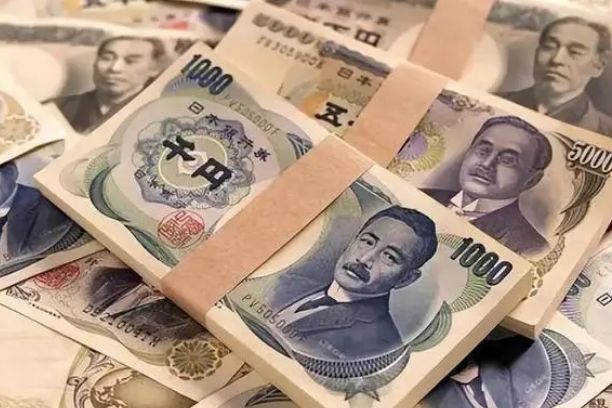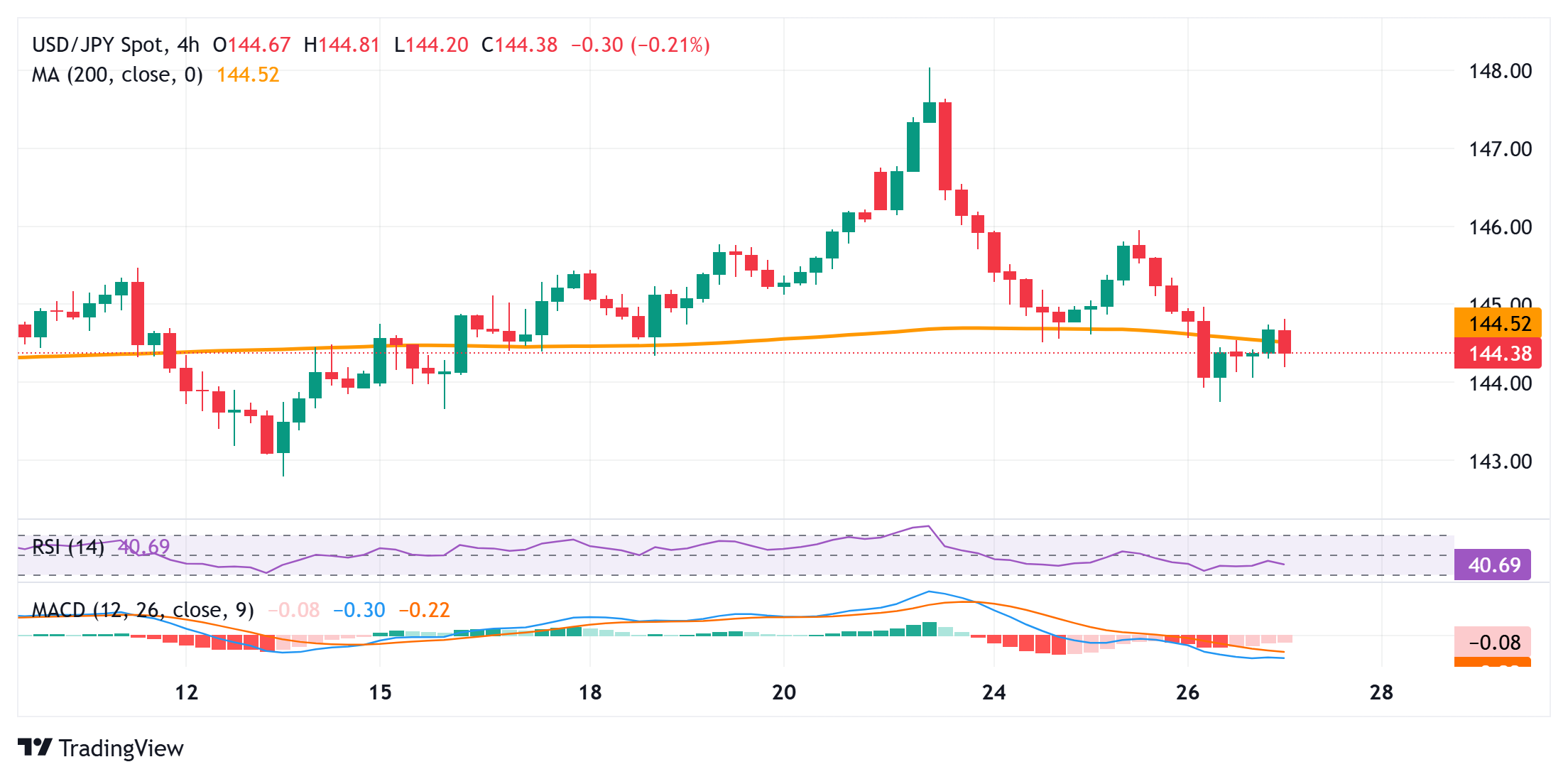
The Japanese Yen edges lower following the release of a softer Tokyo CPI print on Friday.
Bets that the BoJ will hike interest rates further help limit further losses for the JPY.
The USD languishes near a multi-year low and drag on the USD/JPY pair.
The Japanese Yen (JPY) weakened across the board during the Asian session on Friday in reaction to data showing that consumer inflation in Tokyo slowed sharply in June. Adding to this, Japan's Retail Sales recorded growth for the 38th consecutive month, though at the slowest pace since February. This comes on top of expectations that the Bank of Japan (BoJ) could delay rate hikes until Q1 2026, which, along with the upbeat market mood, turns out to be key factors undermining the safe-haven JPY. Apart from this, the uncertainty over the impact of US tariffs on Japan's economy turns out to be another factor contributing to the JPY's relative underperformance on the last day of the week.
Investors, however, seem convinced that the BoJ will stay on the path of monetary policy normalization as inflation in Japan persistently exceeds its 2% annual target. This marks a significant divergence in comparison to other major central banks' push towards a more easing approach and could limit losses for the lower-yielding JPY. The US Dollar (USD), on the other hand, struggles near a three-and-half-year low amid concerns about Federal Reserve (Fed) independence and bets that the US central bank could resume its rate-cutting cycle as early as next month. This further contributes to capping gains for the USD/JPY pair, which remains on track to register heavy weekly losses.
Japanese Yen gains as weaker Tokyo CPI does little to dent BoJ rate hike bets
The Statistics Bureau of Japan reported this Friday that the headline Tokyo Consumer Price Index (CPI) rose 3.1% YoY in June as compared to 3.4% in the previous month. Adding to this, the core gauge, which excludes Fresh Food, decelerated from the 3.6% YoY rate in May to 3.1% against the 3.3% expected. Moreover, the Tokyo CPI that strips out both Fresh Food and Energy rose 3.1% from a year earlier after a 3.3% gain in May.
A separate government report showed that Retail Sales in Japan fell 0.2% MoM in May as compared to the previous month's upwardly revised growth of 0.7%. On a yearly basis, Retail Sales increased by 2.2% during the reported month, down from an upwardly revised 3.5% rise in April and below market expectations of 2.7% growth. The data reaffirms expectations that the Bank of Japan could forgo raising interest rates in 2025.
However, inflation in Japan's capital city remains well above the central bank's 2% annual target. Adding to this, signs of a consistent rise in domestic inflationary pressures keep hopes alive for more rate hikes by the BoJ. In contrast, traders have been betting that the Federal Reserve (Fed) would lower borrowing costs by at least 50 basis points before the end of the year and pricing in a 20% chance of a rate reduction in July.
That said, Fed Chair Jerome Powell maintained a wait-and-see approach to future interest rate decisions this week, prompting criticism from US President Donald Trump, who has been calling for lower interest rates. Moreover, reports suggest that Trump was considering naming Powell's successor by September or October, stoking concerns over the potential erosion of the Fed's independence and undermining the US Dollar.
Apart from this, the Commerce Department’s final estimate released on Thursday showed that the US economy contracted by a 0.5% annual pace from January through March. This represents a steeper decline than the -0.2% reported in the second estimate and was driven by softer consumer spending, which rose by just 0.5%, or the slowest pace since 2020, down sharply from the previously reported 1.2% growth.
Meanwhile, the US Weekly Jobless Claims fell by 10K to a seasonally adjusted 236K during the week ended June 21. However, Continuing Jobless Claims increased by 37K to reach 1.974 million, or the highest since November 2021, for the week ending June 14. This overshadowed the largest increase in Durable Goods Orders since July 2014 and kept the USD depressed near its lowest level since March 2022.
Investors now look forward to the release of the US Personal Consumption Expenditure (PCE) Price Index – the Fed's preferred inflation gauge. The key data will be looked upon for cues about the Fed's rate-cut path, which, in turn, will play a key role in influencing the near-term USD price dynamics and provide some meaningful impetus to the USD/JPY pair.
USD/JPY remains vulnerable below pivotal 200-SMA on H4

From a technical perspective, the USD/JPY pair's move higher on Friday struggles to find acceptance above a support-turned-hurdle marked by the 200-period Simple Moving Average (SMA) on the 4-hour chart and falters near the 144.80 region. Given that oscillators on 4-hour/daily charts have just started gaining negative traction, some follow-through weakness back below the 144.00 mark could make spot prices vulnerable to sliding further below the 143.75 area, or the overnight swing low. The downward trajectory could eventually drag spot prices towards testing sub-143.00 levels.
On the flip side, a sustained strength beyond the 200-SMA, leading to a subsequent strength above the 145.00 psychological mark and the 145.25-145.35 static barrier, might negate the bearish outlook. The USD/JPY pair might then make a fresh attempt to conquer the 146.00 mark, which if cleared decisively should pave the way for additional near-term gains towards the 146.70-146.75 region and the 147.00 round figure.
* The content presented above, whether from a third party or not, is considered as general advice only. This article should not be construed as containing investment advice, investment recommendations, an offer of or solicitation for any transactions in financial instruments.


